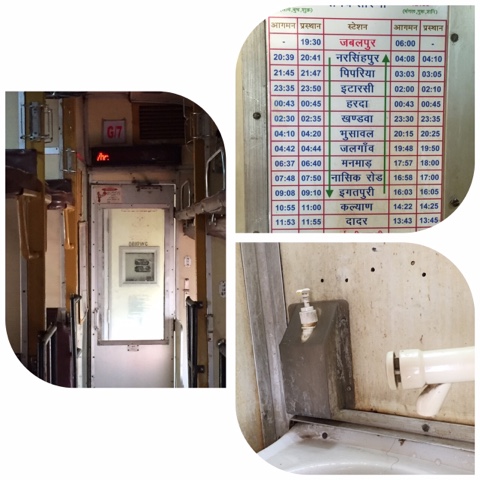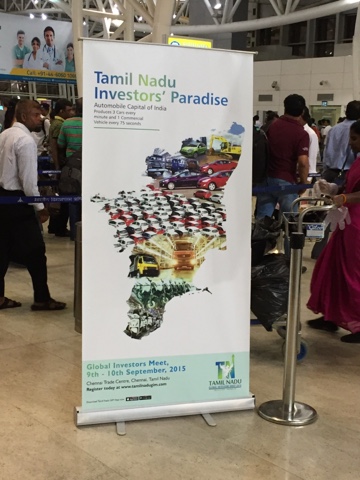Having heard and watched classical music concerts and operas in Europe, I appreciate their way of respecting artist and enjoying art. Mobiles and human are muted or switched off, and sometimes I have wondered if my neighbors are even alive.
It has been four weeks since my immersion in Chennai. Though I am used to the warm and humid weather, but I still largely remain intolerant to women loudly exchanging family gossips in public, people walking in late for performances, letting their mobile phones ring, engaging in conversation on the side. And to add to the noise oldies drag their footwear and couples bring their infants to a place that should be respected with silence. Let's not forget the over enthusiastic rasika singing along and of course the incurable coughing thatha. I wish I had the same stone in my hand that the mridangist uses to iron out the abaswarams in his instrument. This Indian behaviour is the same in both concert halls, which is mostly free and movie halls, which usually paid.
Now let me stop my rant, and share with you what I enjoyed the most listening to two artist on the concluding day of Papanasam Sivan's 125the birth anniversary.
Listening to Papanasam Sivan's compositions is like going to a restaurant that only serves deserts. The choice of Krithis and ragas chosen by both Ramakrishnan Murthy and Gayathri Venkatraghavan showed their capacity to serve a desert as a six course meal. This is what maturity, commitment and practise does to one.
It has been over 4 years since I last heard Ramakrishnan Murthy and today his stage demeanour and body language reflects confidence and comfort in his music. Coming from a culture that prefers open book exam and where R's are rolled, Ramakrishnan had no issue memorising songs and avoiding rolling of R's. Ramakrishna gave a performance filled with popular compositions of Sivan.
1. Tatwamariya - Reethi Gowlai
2. Varali - Kaa vaa
3. Sahana - Chitham Iranga
4. Balakrishna padamalar - Dhanyasi
5. Karaharapriya - Srinivasa thava
6. Kadaikan paarvai - Khamas
7. Yen Thaayum Yenakarul -viruttam- Shanmukapriya, kaapi
8. Sodhanai Sumaikku - Shanmukapriya
Despite alien to this culture, Ramakrishnan is able to capture the mood and potray bhava in the lyrics. His understanding of the lyrics was reflected when he handled the lines Allal utraal unnakallavo perum kurai in the Khamas raga krithi and Padha kamalam agaladha in the Shanmughapriya krithi. After the concert, I accidentally ran into Ramakrishnan's grandfather who told me that he has learnt to read and write Thamizh. It is indeed heartwarming for a young graduate to leave behind materialistic pursuits in the US and relocate to India to take up classical music as a profession. Such move reposes my faith in true artists and the power of our music.
While Gayathri went on the road less traveled taking listeners on a trip to various ksetras. Her music brimming with bhava and brigas, aptly brought out the thapam in Sivan's compositions.
Unlike other music, Carnatic compositions are very spiritual and are often monologues between the composer and various Hindu Gods touching upon myriad emotions primarily seeking forgiveness and refuge. While the ragas employed in the compositions elevate the mood of the performer and listener by subtly engaging them in a soul searching exercise. Something that I couldn't experience when I heard Western Classical.
1. Velayudha Guhan thanakku mun - Virutham - Pantuvarali
2. Neeye Pedhai Mugham - Varnam - Pantuvarali
3. Un Perumai Evar Arivaar - Karaharapriya - Madurai ksetram
4. Sama - Narayana Nalinayada - Sriranga ksetram
5. Sharanam Ayyappa - Mukhari - Sabarimalai ksetram
6. Yadukula Kamboji - Gomathi Thaaye - Sankaran Kovil ksetram
7. Karpagambike - Bilahari - Mylapore
8. Madhyamavathi - Saravana Bhava Guhane - Thiruchendur ksetram
9. Giridhara Gopala - Mohanam
10. Thailana - Behag
This is one reason why I strongly feel that Carnatic music must be prescribed as an alternate or supplement to psychotherapy since most of the compositions have answers to our questions. Otherwise, why would these compositions be alive and popular even after 200 years?
Sadly, we are belong to a noisy and nosey culture that fails to understand the spiritual value in our art and music. To start with, sabhas and movie halls must give out an etiquette booklet along with the tickets/Raga Reckoner. Silence Barath initiative must be kick started in parallel to Swach Barath.
Here is a quick reference to Papanasam Sivan's compositions: http://music.karthiksankar.com/reference/composer/p/papanasam-sivan/















